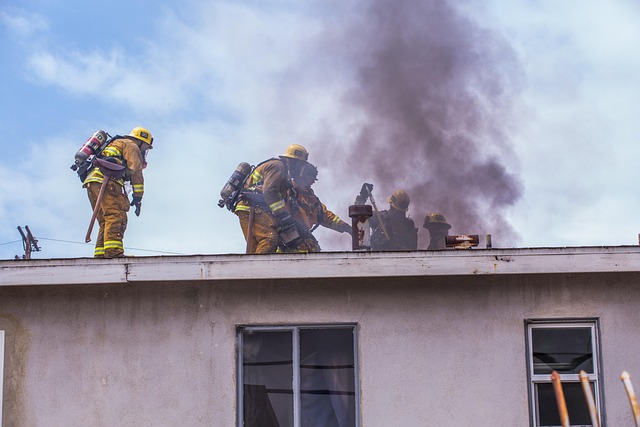Selling a fire-damaged house in California requires strict adherence to property disclosure laws. Sellers must transparently disclose known fires, their severity, cause, extent of damage, and necessary repairs, while buyers are encouraged to conduct meticulous inspections and consult professionals. Failure to disclose could lead to legal consequences, jeopardizing the sale. Key steps include thorough inspection, documentation, consultation with real estate experts, and preparation of detailed disclosure statements for potential buyers.
In California, selling a fire-damaged house comes with specific legal requirements designed to protect both sellers and buyers. This comprehensive guide navigates the property disclosure process, ensuring compliance with state laws. We explore what constitutes fire damage, delving into legal obligations for sellers, buyer protections, and due diligence steps. Whether you’re a seller looking to disclose or a buyer seeking safeguards, understanding these requirements is crucial when selling a fire-damaged house in California.
- Understanding Property Disclosure Requirements in California
- What Constitutes a Fire-Damaged House?
- Legal Obligations for Sellers: Disclosing Fire Damage
- Buyer Protections and Due Diligence
- Navigating the Process: Steps to Sell a Fire-Damaged House Legally
Understanding Property Disclosure Requirements in California

In California, selling a fire-damaged house comes with specific property disclosure requirements. These regulations aim to ensure transparency and protect buyers by mandating that sellers disclose any known issues or damage to potential purchasers. The state law requires sellers to reveal any significant defects or hazards, including those resulting from fires. This includes providing details about the extent of the damage, the cause, and any necessary repairs required.
When a house has been affected by a fire, sellers must be diligent in their disclosure. They should disclose whether the fire was contained to a specific area, the year it occurred, and if any structural damage was done. Additionally, information about any previous inspections or assessments related to the fire damage should be shared. Buyers can then make informed decisions, either proceeding with the purchase knowing the history of the property or negotiating terms based on the required repairs.
What Constitutes a Fire-Damaged House?

When it comes to selling a fire-damaged house in California, understanding what constitutes such a property is paramount for both sellers and buyers. A fire-damaged home refers to a structure that has experienced a structural or non-structural fire, leading to visible evidence of smoke, flame, or water damage. This can range from minor charring on walls and ceilings to extensive destruction of the building’s interior and exterior. The extent of damage is crucial; while some cosmetic repairs may be enough to make a home presentable for sale, significant structural issues often require more substantial renovations.
California has strict property disclosure laws when it comes to fire damage. Sellers must disclose any known fires, their severity, and the steps taken to mitigate potential risks. This includes revealing the extent of damage, repair work conducted, and materials used during reconstruction. Buyers are advised to conduct thorough inspections and seek professional assessments to understand the full scope of fire damage and necessary repairs, especially when considering purchasing a fire-damaged house in California.
Legal Obligations for Sellers: Disclosing Fire Damage

When selling a property in California, sellers have legal obligations to disclose any significant issues that could impact a buyer’s decision. One critical aspect is revealing fire damage history. Fire-damaged houses require special attention due to potential structural and health hazards. Sellers must provide detailed information about any previous fires, including the date, cause, extent of damage, and repairs carried out.
California law mandates full disclosure to ensure transparency and protect buyers from unforeseen risks. Sellers should be prepared to present documentation or reports related to fire damage and subsequent renovation work. This includes providing evidence that all necessary safety standards were met during the rebuilding process. Failing to disclose fire damage could lead to legal consequences and jeopardize the sale of the property.
Buyer Protections and Due Diligence

When considering selling a fire-damaged house in California, buyer protections and due diligence are paramount. In California, specific laws and regulations are in place to safeguard buyers from potential risks associated with purchasing such properties. These protections include disclosure requirements that mandate sellers provide comprehensive information about any known damage or issues, including fire damage.
Due diligence plays a crucial role for buyers. It involves thoroughly inspecting the property, assessing the extent of fire damage, and understanding potential long-term implications. Buyers should engage professional inspectors to evaluate structural integrity, identify hidden risks, and determine the feasibility of repair. This process ensures they make an informed decision, mitigating financial loss or unforeseen challenges that may arise from purchasing a fire-damaged house in California.
Navigating the Process: Steps to Sell a Fire-Damaged House Legally

Navigating the process of selling a fire-damaged house in California involves several crucial steps to ensure legality and transparency. First, conduct a thorough inspection to assess the extent of damage. This step is vital as it determines the scope of repairs needed and potential costs, which are essential disclosures for prospective buyers. Gather all relevant documents, including insurance reports and repair estimates, to provide an accurate picture of the property’s current state.
Next, consult with a real estate professional experienced in handling fire-damaged properties. They can guide you through California’s specific disclosure requirements, ensuring compliance with local laws. Prepare a detailed property disclosure statement, outlining all known issues related to the fire damage. This transparency fosters trust between seller and buyer, setting a positive tone for the sale. Additionally, consider offering potential buyers an opportunity to conduct their inspections to avoid future disputes.
Selling a fire-damaged house in California involves adhering to strict property disclosure requirements. Understanding what constitutes fire damage and the legal obligations of both sellers and buyers is crucial for a seamless transaction. By conducting thorough due diligence, buyers can protect themselves from potential risks, while sellers must disclose all relevant information transparently. Following the outlined steps ensures compliance with California laws when selling a fire-damaged property, facilitating a smooth process for all involved parties.






